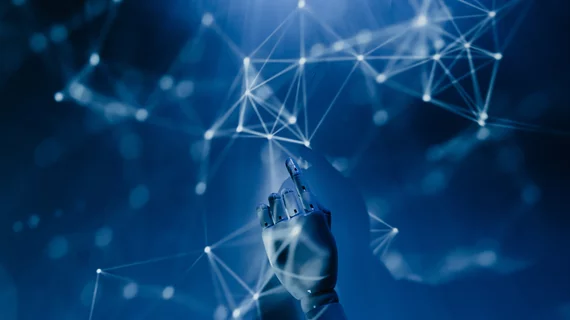If humans and only humans can be named inventors on U.S. patent applications, some AI developers are going to be disincentivized from innovating.
Within healthcare and the life sciences, algorithms that could help save or enhance lives may never arise.
So contends one such developer who is suing the Commerce Department’s U.S. Patent and Trademark Office (USPTO) and its Office of the Undersecretary for Intellectual Property.
Missouri physicist Stephen Thaler, PhD, filed the action last year, challenging the USPTO’s stated position that an invention must originate as a “mental act” in the mind of a “natural person.”
Today Thaler continues pursuing the suit, saying the bureau is discouraging AI innovation by, in effect, prohibiting certain patents.
With such a ban, he suggests, the policy is opening a pathway for bad actors to claim credit for other people’s work.
There’s the innovation disincentive.
The situation gets an airing in a blogpost by two experts in patent law and intellectual property at the international law firm Proskauer.
In the piece, posted Aug. 13 on Proskauer’s life-sciences blog, the authors note that the Thaler case came before a federal judge this spring in Virginia.
District court judge Leonie Brinkema stated that the better body to hash out the issue is Congress.
The Proskauer experts, Xin Hu Rasmussen, PhD, and Baldassare Vinti, JD, describe precedents for settling the question about AI inventorship in other countries.
South Africa recently issued a patent for Thaler’s AI system—intriguingly named “Device for Autonomous Bootstrapping of Unified Sentience” (DABUS)—“without debate about the invention’s nonhuman origin,” Rasmussen and Vinti report.
In Australia, the court “stopp[ed] short of allowing a nonhuman from being named a patent applicant or grantee [but] permitted inventorship in the name of an AI system under Australian statutory provisions.”
Thaler has two pending applications for which he’d like to name AI as the inventor. One of them helps simulate human neural activity.
The authors write:
Even if nonhuman inventorship becomes widely recognized, other important questions of AI and patent law will remain. [One] obvious question that arises is how can a machine like DABUS, which cannot ‘hold’ title to an invention, pass title to an applicant like Thaler under the current patent system. The likely answer is that legislative changes in the U.S. and around the world are needed to expand the limits of patent inventorship and ownership to accommodate such arrangements.

